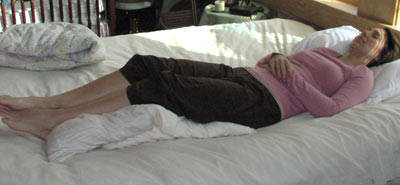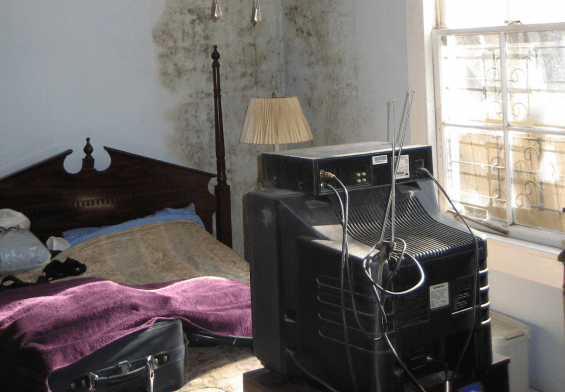Snoring affects millions of Americans and can disrupt your sleep quality and your relationships. It can also sometimes signal underlying health concerns that deserve attention.
This guide explores the main causes of snoring in adults, effective natural solutions to stop snoring, and when you should consult a healthcare professional such as the top dentists in NJ. Armed with this knowledge, you can take practical steps toward quieter, more restful sleep and improved health.
What Happens in Your Body When You Snore?
When you sleep, the muscles in your throat relax. This natural relaxation narrows your airway, and as you breathe, air squeezes through this constricted passage. The pressure of air moving through causes surrounding tissues to vibrate. That vibration is what causes that familiar snoring sound.
For occasional snorers, this might happen during a cold or after drinking alcohol. But chronic snoring might indicate a more serious condition like sleep apnea.
The intensity of snoring varies, from a soft sound to loud, disruptive noise that rattles the home.
6 Common Causes of Snoring and How to Address Them
1. Mouth and Throat Anatomy
Some people are more prone to snoring due to their physical structures. This can include having a narrow airway, enlarged tonsils or adenoids, a low, thick soft palate, or a deviated septum. Each of these anatomical features can restrict airflow during sleep.
What you can do: Consult with an ear, nose, and throat specialist who can check your airway structure. They’ll recommend appropriate treatments, which might include surgical options for severe cases.
2. Excess Weight
Extra weight, particularly around your neck and throat, puts pressure on your airway. This increases snoring risk. The added tissue makes your throat more likely to collapse during sleep.
What you can do: Focus on healthy weight management. Use balanced nutrition and regular physical activity in your daily routine. Even moderate weight loss has been shown to reduce snoring frequency and intensity.
3. Sleeping Position
When you sleep on your back, gravity pulls your relaxed tongue and soft palate backward. This narrows your airway and amplifies snoring. The base of your tongue collapses against the back of your throat, vibrating with each breath.
What you can do: Train yourself to sleep on your side using body pillows for support. You might also try elevated pillows to improve airflow through your nasal passages. Some people find relief with positional therapy devices that discourage back sleeping.
4. Nasal Congestion and Allergies
Blocked nasal passages force you to breathe through your mouth, increasing the likelihood of snoring. Common causes include seasonal allergies, sinus infections, common colds, and reactions to environmental irritants in your bedroom.
What you can do: Use saline nasal sprays to clear passages before bedtime. Running a humidifier in your bedroom can add moisture to the air, reducing congestion. Nasal strips that widen nasal passages may also help. Managing allergies with appropriate medications can provide significant relief from congestion-related snoring.
5. Alcohol and Sedatives
These substances relax your throat muscles, increasing tissue collapse and airway obstruction during sleep. Even moderate alcohol consumption in the evening can intensify snoring by reducing the natural tension in your throat muscles. Sleeping pills and other sedatives can cause deeper relaxation of these tissues.
What you can do: Avoid alcohol for at least 4 hours before bedtime to minimize its muscle-relaxing effects. If you take sedatives, discuss alternatives with your doctor that impact your breathing during sleep less. Many people find that natural relaxation methods like herbal tea or meditation before bed can help promote sleep without worsening snoring.
6. Obstructive Sleep Apnea
This serious condition goes beyond simple snoring. With sleep apnea, your breathing stops and starts throughout the night, depriving your body of oxygen. Warning signs include loud, chronic snoring, gasping or choking during sleep, morning headaches, excessive daytime sleepiness, and difficulty concentrating.
What you can do: Seek professional medical evaluation as soon as possible. Sleep apnea is a serious condition that requires proper diagnosis and management. Treatment options include CPAP therapy, oral appliances designed by dental specialists, and various lifestyle modifications.
When Should You See a Doctor About Snoring?
Consider making an appointment if:
- Your snoring is loud and disruptive
- You experience daytime fatigue despite adequate sleep time
- You wake up gasping or choking
- You have high blood pressure
- Your partner notices pauses in your breathing during sleep
A sleep study can diagnose underlying conditions like sleep apnea, and various treatment options exist. Sleep specialists and qualified dental professionals specializing in sleep disorders offer many of these treatments.
Effective Tips to Reduce Snoring
Try these practical approaches to cut your snoring:
- Maintain healthy weight through diet and exercise
- Sleep on your side rather than your back
- Treat ongoing nasal congestion
- Limit alcohol consumption, especially before bedtime
- Consider anti-snoring devices like nasal strips or mouthguards
- Keep a regular sleep schedule with adequate hours
- Stay well-hydrated throughout the day
- Raise the head of your bed by 4 inches
- Use a specialized anti-snoring pillow
For persistent snoring, especially if accompanied by other symptoms, consult with healthcare providers who can offer personalized solutions. This may include top dentists in NJ who create custom oral appliances.
What Causes Snoring? FAQs
Is snoring dangerous to my health?
Occasional light snoring is usually harmless. But chronic loud snoring can be a sign of sleep apnea, which increases risks for serious health conditions including heart disease, stroke, and diabetes.
Can children have serious snoring problems?
Yes. Children who snore often should see a pediatrician as it may indicate enlarged tonsils, adenoids, or sleep apnea, which can affect development and behavior.
Do anti-snoring devices from drugstores work?
Some over-the-counter solutions like nasal strips or throat sprays provide temporary relief for mild snoring. However, most do not address the underlying causes of moderate to severe snoring.
Will I snore forever once it starts?
Not necessarily. Addressing the root causes, whether through weight loss, position training, treating allergies, or using appropriate devices, can reduce or eliminate snoring.
How is sleep apnea diagnosed?
A sleep study (polysomnography) diagnoses sleep apnea. These can be conducted in a sleep lab or at home with portable monitoring devices. The test measures oxygen levels, brain activity, and breathing patterns during sleep.
Take Action for Better Sleep
Snoring may be common, but it doesn’t have to be a permanent fixture in your bedroom. By understanding the specific causes of your snoring and implementing targeted solutions, you can improve your sleep quality and long-term health.
Start with simple lifestyle changes like weight management and sleep position adjustments. If your snoring persists, seek professional guidance from sleep specialists or dental professionals with expertise in sleep medicine.
Ready to take the next step toward quieter, more restful nights? Consider keeping a sleep diary to track your snoring patterns. Your journey to peaceful sleep, and a happier bed partner, begins with addressing the underlying causes of your snoring today.
Resources:
https://my.clevelandclinic.org/health/diseases/15580-snoring
https://www.ama-assn.org/delivering-care/public-health/what-doctors-wish-patients-knew-about-snoring
https://www.mayoclinic.org/diseases-conditions/snoring/diagnosis-treatment/drc-20377701
https://www.mayoclinic.org/diseases-conditions/snoring/symptoms-causes/syc-20377694



